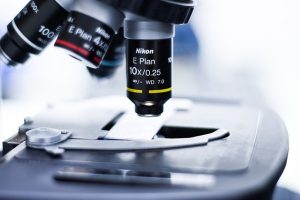Failure analysis techniques play a critical role in diagnosing and preventing polymer and plastic failures in industrial applications. These advanced analytical methods, which include spectroscopy, microscopy, and mechanical property testing, offer deep insights into the molecular-level causes of material degradation or functional failures. By examining failure sites, experts can identify specific stressors, environmental factors, and chemical influences that lead to such issues. This detailed analysis enables the creation of predictive models and informs design enhancements to improve material resilience and extend product lifespans. Industries that adopt these findings proactively can develop more robust polymeric solutions, reducing future failures and enhancing system reliability. Advanced failure analysis is essential for addressing the multifactorial nature of polymer degradation, especially in safety-critical sectors like automotive, electronics, and medical manufacturing, where it ensures that plastic components perform consistently under extreme conditions, maintaining structural integrity and compliance with industry standards. Keywords: Failure Analysis, Polymer Degradation, Material Resilience, Predictive Models, Design Enhancements, Robust Polymeric Solutions.
Polymer and plastic failures in industrial settings are not mere occurrences but critical issues demanding thorough examination. This article delves into the intricacies of these failures, leveraging advanced failure analysis techniques to unravel the causes behind such incidents. By exploring a wide array of factors impacting polymer degradation across different sectors, we aim to shed light on the robust mechanisms that can prevent and mitigate such events. Join us as we navigate the complexities of industrial plastic failure, enhancing safety, reliability, and longevity in application through a deeper understanding.
- Understanding Polymer and Plastic Failures in Industrial Applications through Advanced Failure Analysis Techniques
- Examining the Spectrum of Factors Leading to Polymer Degradation and Plastic Failure Across Various Industries
Understanding Polymer and Plastic Failures in Industrial Applications through Advanced Failure Analysis Techniques
Polymer and plastic failures in industrial applications can have significant consequences, leading to downtime, safety hazards, and financial losses. To mitigate such issues, a thorough understanding of failure mechanisms is crucial. Advanced failure analysis techniques play a pivotal role in deciphering the root causes behind polymer degradation or plastic malfunctions. These sophisticated methods, including spectroscopy, microscopy, and mechanical property testing, offer high-resolution insights into the material’s condition at the molecular level. By examining failure sites, analysts can identify factors such as stress concentrations, environmental exposure, and chemical interactions that contribute to failure. This knowledge enables predictive modeling and informs design modifications to enhance material robustness and product longevity. Consequently, the application of these advanced techniques not only aids in post-failure investigation but also proactively guides the development of more durable polymeric solutions, thereby reducing the likelihood of future failures and enhancing overall system reliability.
Examining the Spectrum of Factors Leading to Polymer Degradation and Plastic Failure Across Various Industries
Polymer degradation and plastic failure are complex phenomena influenced by a myriad of factors that vary across different industrial applications. The spectrum of factors contributing to these issues is broad, encompassing environmental conditions, material properties, processing techniques, and end-use environments. Failure analysis plays a pivotal role in unraveling the underlying causes of polymer failure, which can range from exposure to UV light leading to photodegradation, to chemical compatibility challenges when materials come into contact with specific substances or reactive agents.
In industries such as automotive, electronic devices, and medical manufacturing, the stakes of polymer failure are high due to stringent safety and performance requirements. For instance, in the automotive sector, the integrity of plastic components is paramount; they must withstand a range of temperatures, resist impact without cracking, and maintain structural strength over time. Similarly, electronic devices require plastics that do not outgas or degrade under varying conditions of voltage, temperature, and humidity. Failure analysis in these contexts often involves detailed examination of the polymer’s exposure history, mechanical stresses, and the interaction with other materials to pinpoint failure mechanisms and inform material selection and design improvements for enhanced durability and longevity.
In conclusion, this article has shed light on the multifaceted nature of polymer and plastic failures within industrial settings. Through a comprehensive examination of these phenomena, we’ve identified a spectrum of factors contributing to degradation and failure across diverse industries. Advanced failure analysis techniques have proven instrumental in unraveling the complexities behind such occurrences. Recognizing the importance of proactive measures and tailored responses to prevent such failures, stakeholders in polymer science can leverage this knowledge to enhance product integrity and reliability. By integrating these insights into design and manufacturing processes, industries can significantly mitigate risks associated with plastic degradation, thereby ensuring longevity and performance. The findings presented underscore the necessity for ongoing research and collaboration to address challenges in polymer failure analysis, ultimately safeguarding industrial applications from similar issues.
